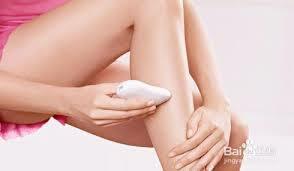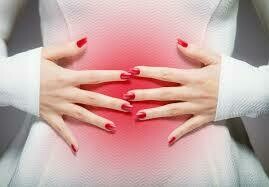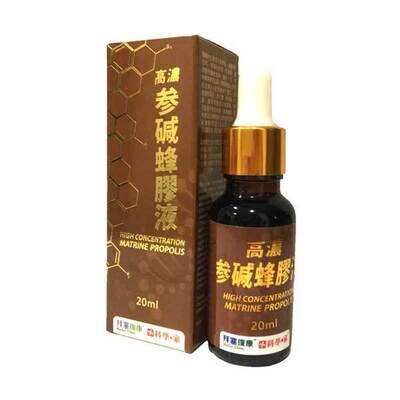多囊卵巢综合征 | PCOS
如你有此疾病,請遵照閣下醫生的完整醫療方案;而是否使用多學科復康方案前,你必須咨詢主診醫生的意見,如果閣下的主診醫生不建議您加入補充劑調理組合,請你不要使用。如果你需要尋求其他醫生作第二咨詢,閣下可聯絡我們線上<無邊界醫生>。或你自己城市內的其他專業醫生的再診斷。
多囊卵巢綜合征(PCOS)
多囊卵巢綜合征(PCOS)是一種影響女性卵巢功能的常見疾病。
多囊卵巢綜合征的3個主要特徵是:
- 月經不規律-這意味著你的卵巢不會定期釋放卵子(排卵)
- 雄激素過多-體內“雄性”激素水准過高,可能導致面部或體毛過多等體征
- 多囊卵巢-卵巢變大,卵子周圍有許多充滿液體的囊(卵泡)(儘管名稱不同,如果你患有多囊卵巢綜合征,你實際上沒有囊腫)
如果你至少有兩個這樣的特徵,你可能被診斷為多囊卵巢綜合征。
多囊卵巢
- 多囊卵巢含有大量無害的卵泡,大小可達8毫米(約0.3英寸)。
- 卵泡是發育不全的囊,卵在其中發育。在多囊卵巢綜合征中,這些囊通常不能釋放卵子,這意味著排卵不發生。
- 很難確切知道有多少女性患有多囊卵巢綜合征,但這被認為是非常普遍的,在英國,每10名女性中就有1人受到影響。
- 超過一半的女性沒有任何症狀。
多囊卵巢綜合征(PCOS)的症狀
如果你有多囊卵巢綜合征的迹象和症狀,它們通常會在你十幾歲或20歲出頭的時候變得明顯。
它們可以包括:
- 月經不規律或根本沒有月經
- 排卵不規律或排卵失敗導致懷孕困難
- 毛髮過度生長(多毛症)–通常在面部、胸部、背部或臀部
- 體重增加
- 頭髮稀疏和頭部脫髮
- 油性皮膚或痤瘡
- 多囊卵巢綜合征還與晚年出現健康問題的風險新增有關,如2型糖尿病和高膽固醇水准。
多囊卵巢綜合征(PCOS)的病因是什麼?
多囊卵巢綜合征的確切病因尚不清楚,但它通常發生在家庭中, 它與體內激素水准异常有關,包括胰島素水准過高; 胰島素是一種控制體內糖分水准的激素。許多患有多囊卵巢綜合征的婦女對體內胰島素的作用產生抵抗,並產生更高水准的胰島素來克服這種情況, 這有助於新增睾酮等激素的產生和活性, 超重或肥胖也會新增你身體產生的胰島素量。
If you have this disease, please follow your doctor's complete medical plan. You must consult the attending doctor before using the multidisciplinary rehabilitation plan. If your attending doctor does not recommend you to join the supplement conditioning combination, please do not use it. If you need to seek second consultation from other doctors, you can contact our online "Doctors Without Borders". Or another professional doctor in your own city.
Polycystic ovary syndrome (PCOS)
Polycystic ovary syndrome (PCOS) is a common condition that affects how a woman's ovaries work.
The 3 main features of PCOS are:
- irregular periods – which means your ovaries do not regularly release eggs (ovulation)
- excess androgen – high levels of "male" hormones in your body, which may cause physical signs such as excess facial or body hair
- polycystic ovaries – your ovaries become enlarged and contain many fluid-filled sacs (follicles) that surround the eggs (but despite the name, you do not actually have cysts if you have PCOS)
If you have at least 2 of these features, you may be diagnosed with PCOS.
Polycystic ovaries
Polycystic ovaries contain a large number of harmless follicles that are up to 8mm (approximately 0.3in) in size.
The follicles are underdeveloped sacs in which eggs develop. In PCOS, these sacs are often unable to release an egg, which means ovulation does not take place.
It's difficult to know exactly how many women have PCOS, but it's thought to be very common, affecting about 1 in every 10 women in the UK.
More than half of these women do not have any symptoms.
Symptoms of polycystic ovary syndrome (PCOS)
If you have signs and symptoms of PCOS, they'll usually become apparent during your late teens or early 20s.
They can include:
- irregular periods or no periods at all
- difficulty getting pregnant as a result of irregular ovulation or failure to ovulate
- excessive hair growth (hirsutism) – usually on the face, chest, back or buttocks
- weight gain
- thinning hair and hair loss from the head
- oily skin or acne
PCOS is also associated with an increased risk of developing health problems in later life, such as type 2 diabetes and high cholesterol levels.
What causes polycystic ovary syndrome (PCOS)?
- The exact cause of PCOS is unknown, but it often runs in families.
- It's related to abnormal hormone levels in the body, including high levels of insulin.
- Insulin is a hormone that controls sugar levels in the body.
- Many women with PCOS are resistant to the action of insulin in their body and produce higher levels of insulin to overcome this.
- This contributes to the increased production and activity of hormones like testosterone.
- Being overweight or obese also increases the amount of insulin your body produces






